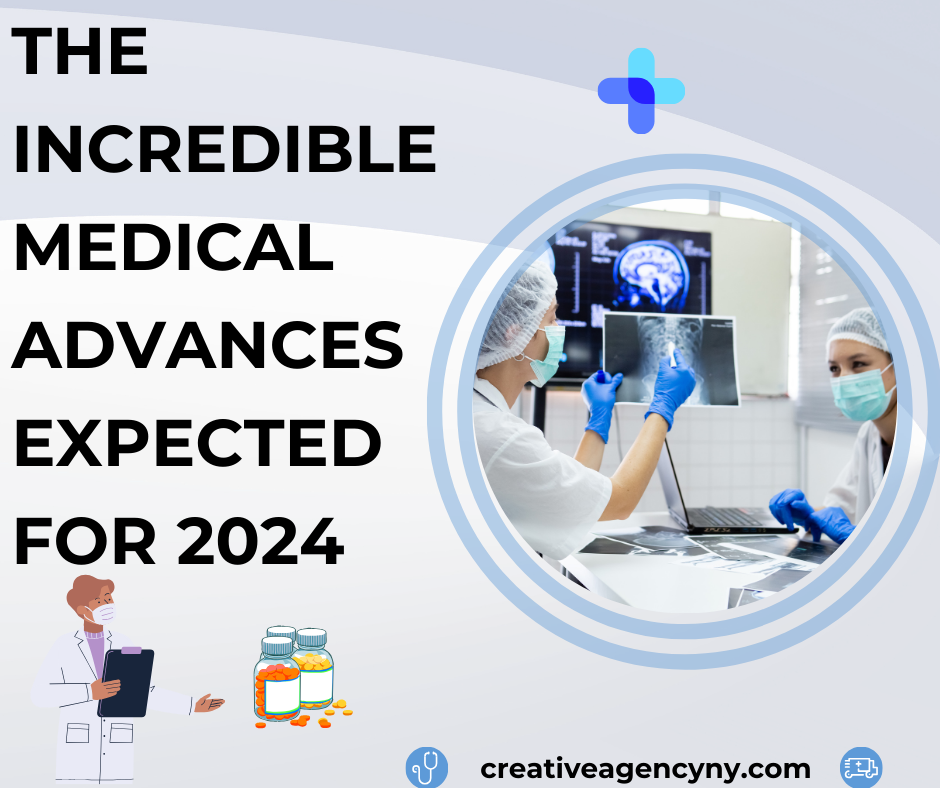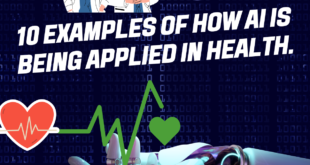
2024 is poised to be a pivotal year for medical advancements, with incredible developments thanks to new technologies and the advent of artificial intelligence.
Experts point out the following clinical trials that will change many diseases in particular and medicine in general. The most prestigious journal in medical and biological science, Nature Medicine, recently published an article predicting medical advances in 2024 based on promising clinical trials set to take place in the coming months. New technologies, especially the explosion of artificial intelligence, will also represent a giant leap in research and applications for medicine, be it in diagnosis, analysis, or treatments. Some innovations are already close, and until now, they seemed like science fiction.
These are the revolutionary advances expected for 2024, grounded not in conjecture but in realities based on examples provided by experts from clinical trials expected to have a massive impact on medicine.
Genetic Editing for Hypercholesterolemia
One of the most exciting advances in medicine is the heart-1 trial, focusing on in vivo DNA base editing. This global study targets patients with heterozygous familial hypercholesterolemia, a hereditary disease affecting many people. The research focuses on the PCSK9 gene, which breaks down LDL cholesterol, a risk factor for cardiovascular diseases. Despite current therapies, many patients cannot reach optimal LDL cholesterol levels. The heart-1 trial seeks to demonstrate the efficacy of PCSK9-targeted base editing in durably reducing LDL cholesterol. This breakthrough could change the lives of people with hypercholesterolemia.
Two Promising Trials for Lung Cancer
AI for Early Diagnosis of Lung Cancer Early diagnosis of lung cancer is essential for improving survival rates. In 2024, artificial intelligence (AI) is playing a crucial role in this field. An ongoing study in the UK is assessing whether AI applied to chest X-rays can shorten the time to diagnosis. Preliminary results show a significant reduction in diagnostic time, which could save lives. If AI’s effectiveness in this context is confirmed, it could become a standard practice in early lung cancer detection.
CT Scan Detection of Lung Cancer Early detection of lung cancer is crucial for saving lives. The 4-IN THE LUNG RUN study aims to determine if biennial screenings are as effective as annual screenings in individuals without initial abnormalities. If this approach proves equally effective, it could enhance the implementation of lung cancer detection.
T-Cell Vaccine for HIV
HIV remains a global health concern, and in 2024, progress is being made in the search for an effective vaccine. The VIR-1388 vaccine, based on T-cells and developed through multicenter research, is promising. This phase 1 study aims to assess the safety and immunogenicity of the vaccine in healthy adults. VIR-1388 is based on a cytomegalovirus nanoparticle that induces strong T-cell responses. If this study succeeds, it could represent a significant breakthrough in HIV prevention.
App-based Therapy for Perinatal Depression
Mental health is a growing concern, and perinatal depression affects many women worldwide. In 2024, a team led by the University of Liverpool is developing an app that allows non-medical individuals to provide cognitive therapy to pregnant women suffering from depression. This innovative approach could address the shortage of trained professionals in low- and middle-income countries.
Stem Cells for Parkinson’s Disease
The STEM-PD trial represents a significant advance in Parkinson’s disease research. Instead of focusing on patients in advanced stages of the disease, this trial targets those in an early phase. Transplanting dopaminergic neurons derived from human embryonic stem cells has the potential to change the lives of people with moderate Parkinson’s. Preliminary results are expected by the end of 2024.
Machine Learning for Patient Triage
Early identification of high or low-risk patients in the emergency department is essential. In 2024, machine learning is being used to improve this process. The MARS-ED study is evaluating the diagnostic accuracy and clinical impact of RISKINDEX, a new AI-based clinical risk score. If this model proves successful, it could help identify patients in need of urgent care more efficiently.
Immunotherapy for Melanoma
Melanoma is an aggressive form of skin cancer, and in 2024, significant clinical trials are underway. The NADINA trial is assessing the efficacy of a new treatment with ADC (antibody-drug conjugate) called trastuzumab deruxtecan in stage III primary melanoma patients. This international study aims to better understand the intracranial activity of ADCs and could significantly improve the care of patients with brain metastases.
ADC for Brain Metastases
Brain metastasis is a significant challenge in breast cancer, and the DESTINY-Breast12 study is evaluating the efficacy of a new treatment with the previously mentioned ADC trastuzumab deruxtecan. This international study aims to better understand the intracranial activity of ADCs and could significantly improve the care of patients with brain metastases.
Long-term Efficacy of Malaria Vaccine R21
Malaria is a devastating disease affecting many people worldwide. The R21 vaccine shows promise in the fight against malaria, and the ongoing clinical trial aims to evaluate its long-term efficacy. If this vaccine proves effective, it could have a significant impact on public health by preventing malaria more effectively.
Childhood Mental Health Intervention Model
Childhood mental health is a growing concern, especially for children in foster care. The New Orleans Intervention model is being evaluated in the UK for children aged 0 to 5 in foster homes. If this model succeeds, it will radically change how support is provided to these children.
Frequently Asked Questions (FAQs)
1. How do genetic editing trials work?
Genetic editing trials involve modifying DNA in living organisms. In the heart-1 trial, researchers focus on editing the PCSK9 gene to reduce LDL cholesterol, addressing a hereditary condition.
2. How does AI contribute to early cancer diagnosis?
AI, as seen in the UK study, analyzes chest X-rays to expedite the diagnosis of lung cancer. This technology shows promising results in significantly reducing diagnostic time.
3. What is the significance of T-cell vaccines for HIV prevention?
T-cell vaccines, like VIR-1388, aim to induce strong immune responses against HIV. If successful, this approach could represent a groundbreaking method for preventing HIV.
4. How can app-based therapy help with perinatal depression?
The app developed by the University of Liverpool enables non-medical individuals to provide cognitive therapy to pregnant women with depression. This innovation addresses the lack of mental health professionals in certain regions.
5. What distinguishes STEM-PD from other Parkinson’s disease trials?
STEM-PD focuses on transplanting dopaminergic neurons derived from human embryonic stem cells in the early stages of Parkinson’s disease. This approach targets individuals in a moderate disease phase.
6. How does machine learning improve patient triage in emergency departments?
The MARS-ED study evaluates the RISKINDEX, an AI-based clinical risk score, to enhance the identification of high or low-risk patients in emergency departments, improving the efficiency of urgent care.
7. What makes ADCs a potential breakthrough in cancer treatment?
ADCs, such as trastuzumab deruxtecan, combine antibodies with cytotoxic drugs, enhancing their precision in targeting cancer cells. Studies like
 Creative agency information Information about media, marketing y creative
Creative agency information Information about media, marketing y creative


